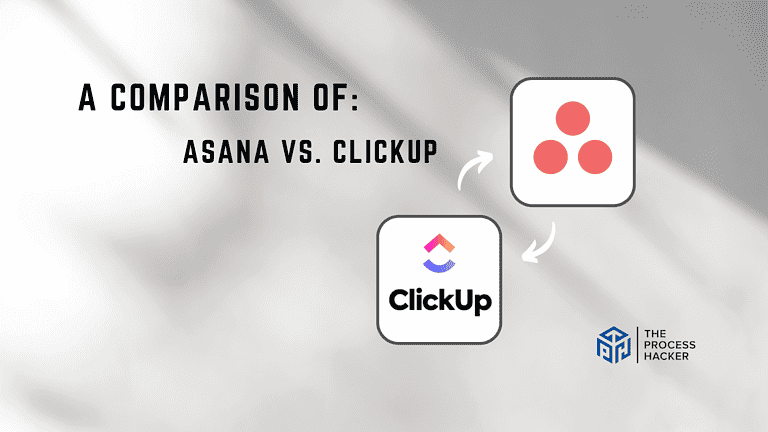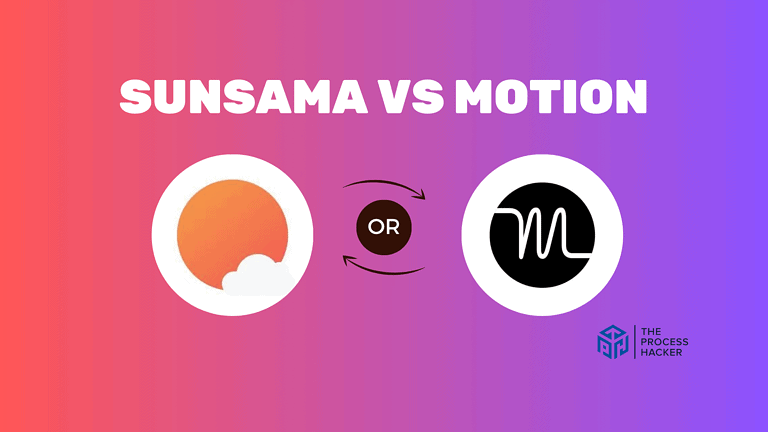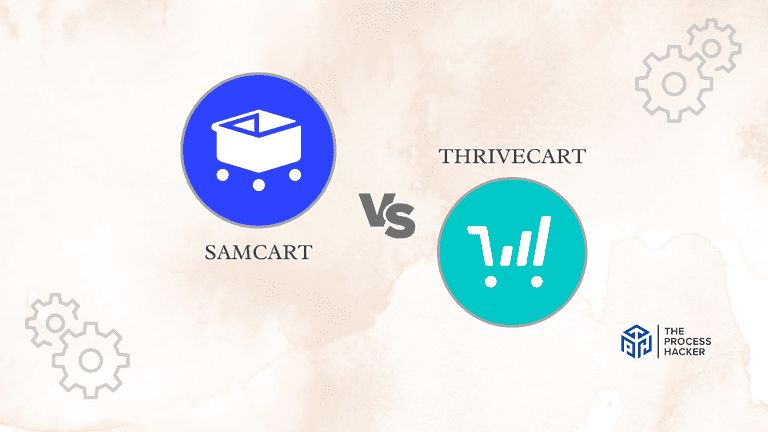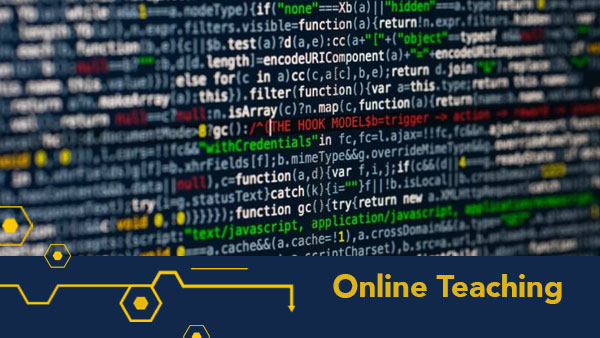

How to Use Project Management in Education?
Are you tired of feeling overwhelmed and disorganized in school? Do you wish there was a way to manage your time and assignments better?
Look no further because I have an exciting framework for you! In this blog post, we will explore the concept of project management and how it can be applied to education.
Project management skills are useful not only in the business or professional world but can also greatly benefit students in their academic journey. So whether you’re a high school student struggling with multiple classes or a college student balancing coursework and extracurriculars, this article is for you.
Get ready to learn some valuable tips and tricks on using project management skills to excel in your education!
What is Project Management?
Project management in business involves organizing, project planning, and carrying out projects to meet certain organizational goals. When applied to education, these tasks could include implementing new technology in classes, preparing for big events like graduations, or introducing new lessons.
Simply put, project management helps ensure that project planning is completed quickly, correctly, and within the allocated funds. It involves breaking down larger tasks into smaller manageable ones, setting deadlines and milestones, assigning project management roles and responsibilities, and tracking progress.
What Do Project Managers Look Like in Educational Settings?
In an educational setting, a project manager coordinates a project’s different parts and ensures they all fit with the overall educational goals. This job might include talking to stakeholders, allocating resources, and keeping track of deadlines.
Through careful planning and organization, the project manager ensures that the different needs of the students, teachers, and administrative staff are met.
How Does Effective Project Management Benefit You in Education?
Some of the most important benefits of project management in education are the following:
- Enhanced Efficiency : Through structured planning and execution, schools can maximize resource use and reduce waste.
- Better Accountability: Everyone knows what they are supposed to do when roles and tasks are clear. This makes it easier to keep track of performance and progress.
- Better Use of Resources : Knowing the requirements and scope of a job helps make better use of time, money, and materials.
- More adaptability: good project management includes planning for what could go wrong, which helps schools be ready to deal with changes or problems that come up out of the blue.
How Do You Apply Project Management Skills in Education?
Project-based learning is a common way to teach where students gain knowledge and skills by working on difficult questions, problems, or tasks for a long time. Here are some project management rules that can help make sure that student projects are successful:
Planning and Goal Setting
Picture yourself as an educator: you have exciting ideas, whether it’s a new lesson series, a field trip, or a broader curriculum change. The key to translating those ideas into reality is solid planning and setting clear goals. Here’s how a project management approach makes this happen:
- Start with the big picture: What’s the ultimate outcome you want to achieve? Get specific!
- Break it down: Instead of one overwhelming task, create a series of smaller, more manageable steps.
- Set deadlines: When must you accomplish each step to meet your overall goal?
Additionally, it’s crucial to adapt your plans based on your class’s unique needs and pacing. This flexibility allows you to adjust timelines or instructional strategies to maximize learning outcomes.
In this way, project management isn’t just about sticking to an entire project plan but also about responding to the classroom dynamics and ensuring that all students can successfully reach their educational goals.
Resource Management
Just like project managers in any field, educators need to be resourceful! This means knowing how to identify, allocate, and manage the things you need to make your projects successful. This could include physical materials, funding, time, technology, or even the knowledge and skills of those around you.
How to Manage Resources as an Educator
Risk Management
Teaching students to anticipate potential risks and devise strategies to mitigate them prepares them for unpredictable scenarios, both in and out of academic settings.
Here are key questions to guide your risk management approach in educational projects and how to approach them:
- What could go wrong? Brainstorm a comprehensive list of potential issues, from minor setbacks to major disruptions.
- How likely is each risk to occur? Rate each risk as low, medium, or high probability.
- What would the impact be if a risk became a reality? Consider how it would affect your timeline, budget, student outcomes, or overall project success.
- How can you prevent or minimize each risk? Are there proactive steps you can take to reduce the likelihood or impact?
- What’s your contingency plan? If a risk does occur, what specific actions will you take to address it?
- Who is responsible for monitoring each risk? Assign individuals or multiple team members to track potential problems and implement contingency plans.
- When will you review and update your risk assessment? Schedule regular check-ins to adjust your plan as circumstances change.
Being Resourceful and Getting Expert Help
Students undertaking complex educational projects can greatly benefit from external expertise when applying project management principles to education. Papersowl, a professional essay writing service, provides a critical resource.
This platform employs top-rated writers who contribute not only by crafting high-quality papers but also by imparting essential project management techniques that students can apply to their complex projects. Accessing online help through an essay service at critical stages of a project can decisively improve the quality of a student’s work, ensuring adherence to academic standards and project timelines.
This integration of professional support helps students manage their academic projects more effectively, thereby boosting their productivity and educational outcomes.
How to Integrate Technology in Project Management Education?
Technology is an important part of modern schooling. Software made just for schools that manage projects can help teachers and managers better plan, carry out, and monitor projects.
Students and teachers can communicate and work together better using project management tools . These tools often offer places to talk, share files, and get feedback in real-time, all of which are necessary for flexible educational projects.
Here’s a list of tools that help deliver discussions, instructions, and information:
1) Google Workspace for Education
This suite of tools, previously known as G-Suite for Education, is designed specifically for classroom collaboration. It includes essential applications such as Google Docs, Sheets, and Slides, allowing students and teachers to share files and collaborate in real-time.
Google Drive facilitates easy file storage and sharing, while Google Classroom integrates these tools to streamline the management of assignments and feedback. This platform is particularly useful for schools that need a comprehensive set of collaborative tools that are easy to use and manage.
2) Microsoft Teams
Microsoft Teams is a robust platform that integrates seamlessly with the Microsoft Office suite, including Word, Excel, and PowerPoint. It offers features like chat, video calls, and organizing classes and assignments within the platform for all project team members.
Teams are ideal for educational institutions already using Microsoft products and looking for a solution that supports communication and collaboration within the same ecosystem.
Known primarily for its video conferencing capabilities, Zoom has become an essential tool in education, especially for remote learning. It supports video calls, screen sharing, and breakout rooms, making it suitable for lectures, group discussions, and collaborative meetings.
Its ease of use and reliable performance make it a preferred choice for real-time communication in academic settings.
Canvas is a learning management system (LMS) that integrates various educational tools into a single platform. It supports assignments, grading, and discussions and includes features for file sharing and collaborative workspaces.
Educational institutions favor Canvas for its comprehensive approach to course management and its ability to facilitate both teaching and learning in a cohesive environment.
Moodle is an open-source LMS known for its flexibility and the wide range of plug-ins available. It supports online learning through features such as forums, databases, and wikis, which encourage collaborative work among students.
Moodle’s adaptability makes it a popular choice for institutions that require a customizable platform that can be tailored to specific educational needs.
Notion is an all-in-one workspace where users can write, plan, collaborate, and organize. It integrates notes, tasks, databases, and calendars into a single platform, making it an excellent AI project management tool for managing extensive notes, future projects, and collaborative tasks.
Notion’s flexibility and comprehensive features make it ideal for students and educators who require a versatile tool for individual and collaborative work.
Tracking and Evaluation
Using technology, teachers can monitor project progress and judge success based on set criteria. This constant evaluation helps improve project plans and results.
Here’s a concise overview of how technology aids in tracking and evaluating educational projects:
- Real-Time Monitoring and Feedback: Tools like Google Classroom and Trello allow teachers to track submissions and progress, offering immediate feedback to students, which can guide timely adjustments and improvements.
- Data-Driven Decisions: Learning management systems (LMS) such as Canvas and Blackboard provide analytics that help teachers understand student engagement and performance, allowing for targeted instructional changes.
- Collaborative Tools for Peer Review: Platforms like Microsoft Teams and Slack enable peer collaboration and feedback, fostering a supportive learning environment and encouraging peer-to-peer learning.
- Rubrics and Standardized Assessment: Educational technologies often include features to create and apply rubrics, helping standardize assessments and clarify expectations, which makes grading transparent and consistent.
- Adaptive Learning Technologies: Some LMS platforms adjust the difficulty of content based on individual student performance, ensuring personalized learning experiences that are challenging yet accessible.
- Portfolio and Progress Tracking: Digital portfolios, supported by platforms like Notion, help students and teachers track long-term progress and reflect on learning outcomes over time.
- Automated Testing and Quizzes: Automated assessments within LMS platforms provide quick insights into student understanding, offering immediate feedback and helping teachers identify areas that need further instruction.
These technological tools streamline the process of project tracking and evaluation, enhancing educational outcomes through structured support and comprehensive data analysis.
Challenges of Implementing Project Management in Education
There are clear benefits to applying project management skills in school , but it’s not always easy.
First, there is a lack of awareness and training among students and educators. Many students are not aware of project management techniques and their importance in academic work, which can lead to disorganized and inefficient project completion.
Additionally, there may be resistance from educators who are accustomed to traditional project management methodologies in a school setting and may not see the value in incorporating project management into their curriculum.
Another challenge is the limited resources available for students to access professional support. While essay services can provide valuable assistance, not all students have access to them or may not be able to afford them.
However, despite these challenges, it’s important for educators to recognize the benefits of project management and strive to incorporate it into their teaching and project management methods.
Final Thoughts on Project Management
Project management in education offers a structured approach to managing educational projects, enhancing learning outcomes, and preparing students for future challenges. By adopting project management principles, educational institutions can operate more efficiently and responsively, fostering an environment where administrative goals and educational strategies align seamlessly.
Embracing these practices, educators, and administrators can ensure that they are not just teaching students but also providing them with a framework for success in their academic and professional futures.
Dev is a strategist, productivity junkie, and the founder of the Process Hacker !
I will help you scale and profit by streamlining and optimizing your operations and project management through simple, proven, and practical tools.
To get help for your business, check out my blog or book a call here !
Similar Posts

How to Be a Great Boss by Gino Wickman | Summary
In How to Be a Great Boss, Gino Wickman and Rene Boer help you become an amazing boss and get the most out of your organization and people.

Asana vs ClickUp: Which Project Management Tool is Better?
Choosing between Asana and ClickUp? In this post, we’ll compare their benefits and features to help you pick the best tool for your business.

Color Code Your Calendar: How to Plan Your Time
Many of us use one or two calendars, but it’s not effective. You need to use several color coded calendars to take control of your time and be productive.

Sunsama vs Motion: Which Powerful Productivity Tool is Better?
Seeking a productivity app to supercharge your efficiency? Dive into our Sunsama vs. Motion review to discover the perfect fit for you.

SamCart vs ThriveCart: Which Shopping Cart Platform is Better?
Compare the features of SamCart vs ThriveCart to find your ultimate shopping cart MVP. Get ready for the showdown!

Harvest Review 2024: Best Time Tracking Software?
Explore our Harvest review for this top time-tracking tool for remote work. Review its features, usability, and effectiveness.
Publications
On-demand strategy, speaking & workshops, latest articles, write for us, library/publications.
- Competency-Based Education
- Early Learning
- Equity & Access
- Personalized Learning
- Place-Based Education
- Post-Secondary
- Project-Based Learning
- SEL & Mindset
- STEM & Maker
- The Future of Tech and Work

Stacy Wall Schweikhart and Dr. Thomas Lasley on Learn to Earn Dayton
Nell rosenberg on access and teleservices programs, julian guerrero on pathways and programs for indigenous youth, cynthia leck and juetzinia kazmer-murillo on igniting agency in early learners, recent releases.
Unfulfilled Promise: The Forty-Year Shift from Print to Digital and Why It Failed to Transform Learning
The Portrait Model: Building Coherence in School and System Redesign
Green Pathways: New Jobs Mean New Skills and New Pathways
Support & Guidance For All New Pathways Journeys
Unbundled: Designing Personalized Pathways for Every Learner
Credentialed Learning for All
AI in Education
For more, see Library | Publications | Books | Toolkits
Microschools
New learning models, tools, and strategies have made it easier to open small, nimble schooling models.
Green Schools
The climate crisis is the most complex challenge mankind has ever faced . We’re covering what edleaders and educators can do about it.
Difference Making
Focusing on how making a difference has emerged as one of the most powerful learning experiences.
New Pathways
This campaign will serve as a road map to the new architecture for American schools. Pathways to citizenship, employment, economic mobility, and a purpose-driven life.
Web3 has the potential to rebuild the internet towards more equitable access and ownership of information, meaning dramatic improvements for learners.
Schools Worth Visiting
We share stories that highlight best practices, lessons learned and next-gen teaching practice.
View more series…
About Getting Smart
Getting smart collective, impact update, project management for education.

Bernie Trilling has been on a decade-long journey to bridge professional project management and project-based learning. His new book, Project Management for Education , makes the case that project-based learning (PBL) is the best way to build 21st-century skills and that project management is the most important career skill.
Project Management for Education, developed and published by the Project Management Institute Educational Foundation , makes this case:
- Learning Projects are great vehicles for students to gain essential 21C Skills.
- One of the biggest lifts for both teachers and students is managing all those pesky moving parts of rich, motivating learning projects – a real challenge for PBL.
- Who knows the most about managing projects? Project Managers! And the world’s largest organization of PMs – the Project Management Institute .
- Find out what makes projects sing, and adapt the business and engineering principles and practices for educators.
Pretty straightforward, right? Only the last bullet took longer than Bernie imagined because.
Business project management and project-based learning have had little overlap. Ask PBL teachers if they’ve ever had any training in project management – not many hands go up. And, not many project managers have had any K-12 teaching experience. (Having been a project manager in energy, construction, and technology before becoming a school administrator, I’m thrilled Bernie and PMI made this connection!)
Published later this month, the book is two-sided. One side of the book is for educators, flip it over, and the other side is for project managers, with a “rainbow bridge” center section of illustrated case studies.
The guiding equation of Project Management for Education is:
PM + PBL = Deeper Learning for Career, Community and Life
In writing the educator part of this book, Bernie had a couple of important insights. The first is that there is a basic set of phases to managing any project and a number of variations built up from this basic Project Cycle (bottom of the chart) that can be applied to any project challenge. The following chart shows the similarities and differences in different types of projects:
Second, more work needs to be to be done in adapting “exploratory” or “agile” project management methods for education. Here is a chart of how these two project types map against the basic Define, Plan, Do, Review process:
And third, Bernie’s most important insight is that this is not just about getting things done–the Define, Plan, Do, Review process is really a learning process.
“This project cycle just may be education’s most important missing link in nurturing self-propelled, self-reliant, lifelong learners,” said Trilling.
Project management includes core skills and processes for helping any learner l earn-how-to-learn –the metacognition skills for a lifetime of learning.
On the subject of core skills, Trilling knows what he’s talking about. With Charles Fadel, he’s co-author of Four-Dimensional Education: The Competencies Learners Need to Succeed an important book and outcome framework.
Project Management for Education is an important book. It outlines a rigorous approach to project-based learning not only because it is engaging but because project management is a core career skill and (with reflection) the best approach to learning how to learn.
For more, see:
- Finding The Critical Path is a Critical Project Management Skill
- Lifelong Learning + Project Management
- Project Management Solutions for the 21st-Century Student
- Building Better Teams for Project-Based Work
- Projects That Learn
- Project or Activity? Project-Based Learning and Cousins
Stay in-the-know with all things EdTech and innovations in learning by signing up to receive Getting Smart’s weekly Smart Update .

Tom Vander Ark
- @tvanderark
- @TomVanderArk
Discover the latest in learning innovations
Sign up for our weekly newsletter.
Related Reading

Real World Learning: Client Projects Are Trending

Empower Online Learners: Top 10 Pro Tips for Project Design and Delivery

Out with the Test, in With PBL: How Project- Based Learning is Transforming Remote Learning

How Systems and States Can Encourage Better Project-Based Learning
Leave a comment.
Your email address will not be published. All fields are required.
Nominate a School, Program or Community
Stay on the cutting edge of learning innovation.
Subscribe to our weekly Smart Update!
Smart Update
What is pbe (spanish), designing microschools download, download quick start guide to implementing place-based education, download quick start guide to place-based professional learning, download what is place-based education and why does it matter, download 20 invention opportunities in learning & development.
Project Management for Education
- Share article
Bernie Trilling has been on a decade-long journey to bridge professional project management and project-based learning. His new book, Project Management for Education , makes the case that project-based learning (PBL) is the best way to build 21st-century skills and that project management is the most important career skill.
Project Management for Education, developed and published by the Project Management Institute Educational Foundation , makes this case:
- Learning Projects are great vehicles for students to gain essential 21C Skills.
- One of the biggest lifts for both teachers and students is managing all those pesky moving parts of rich, motivating learning projects - a real challenge for PBL.
- Who knows the most about managing projects? Project Managers! And the world’s largest organization of PMs - the Project Management Institute .
- Find out what makes projects sing, and adapt the business and engineering principles and practices for educators.
Pretty straightforward, right? Only the last bullet took longer than Bernie imagined because.
Business project management and project-based learning have had little overlap. Ask PBL teachers if they’ve ever had any training in project management - not many hands go up. And, not many project managers have had any K-12 teaching experience. (Having been a project manager in energy, construction and technology before becoming a school administrator, I’m thrilled Bernie and PMI made this connection!)
Published later this month, the book is two-sided. One side of the book is for educators, flip it over, and the other side is for project managers, with a “rainbow bridge” center section of illustrated case studies.

The guiding equation of Project Management for Education is:
PM + PBL = Deeper Learning for Career, Community and Life
In writing the educator part of this book, Bernie had a couple of important insights. The first is that there is a basic set of phases to managing any project and a number of variations built up from this basic Project Cycle (in red at the bottom of the chart) that can be applied to any project challenge. The following chart shows the similarities and differences in different types of projects:
Second, more work needs to be to be done in adapting “exploratory” or “agile” project management methods for education. Here is a chart of how these two project types map against the basic Define, Plan, Do, Review process:

And, third, Bernie’s most important insight, is that this is not just about getting things done. The Define, Plan, Do, Review process is really a learning process.
“This project cycle just may be education’s most important missing link in nurturing self-propelled, self-reliant, lifelong learners,” said Trilling.
Project management includes core skills and processes for helping any learner l earn-how-to-learn--the metacognition skills for a lifetime of learning.
On the subject of core skills, Trilling knows what he’s talking about. With Charles Fadel, he’s co-author of Four-Dimensional Education: The Competencies Learners Need to Succeed an important book and outcome framework.
Project Management for Education is an important book. It outlines a rigorous approach to project-based learning not only because it is engaging but because project management is a core career skill and (with reflection) the best approach to learning how to learn.

For more, see:
- Finding The Critical Path is a Critical Project Management Skill
- Lifelong Learning + Project Management
- Project Management Solutions for the 21st-Century Student
- Building Better Teams for Project-Based Work
- Projects That Learn
- Project or Activity? Project-Based Learning and Cousins
Stay in-the-know with all things EdTech and innovations in learning by signing up to receive Getting Smart’s weekly Smart Update .
The opinions expressed in Vander Ark on Innovation are strictly those of the author(s) and do not reflect the opinions or endorsement of Editorial Projects in Education, or any of its publications.
Sign Up for EdWeek Update
Here to help you grow
Whether you're looking to build your business, develop your career, or pick up a new digital skill, we can help you get started.
What can we help you with?
And what would you like to do?
- Show me everything
- Prepare for a new job
- Develop communication skills
- Increase my productivity
- Learn about digital marketing
- Learn coding & development skills
- Get started with artificial intelligence
- Get started with cloud computing
- Stay safe online
- Learn design skills
- Improve my digital wellbeing
- Champion diversity
- Learn about sustainability
- Understand my audience
- Start selling online
- Expand internationally
- Keep my business safe online
Grow your career
Whether you're writing your first CV or deepening your technical knowledge, our library is full of ways to sharpen your digital skillset.

Google Career Certificates
Earn a Google Career Certificate to prepare for a job in a high-growth field like Data Analytics, UX Design, and more.

Introductory digital skills courses
Get started with a range of digital skills, with entry level courses in everything from online marketing to coding.

Cloud computing fundamentals
From intro to advanced-level learning, find out more about cloud computing principles and career paths.

Google product trainings
Learn how to get the most out of the Google products you use, like Google Ads or Analytics.
Grow your business
From bringing your business online for the first time to growing its reach internationally, our library of online learning and tools can help you take your business further.

Your Digital Essentials Guide
Get an introduction to the products, tools and tips that can help you build an online presence for your small business.

Flexible online training
Learn online, at your own pace, with a library of training made to help strengthen your business with digital skills.

Resources for startups
Google for Startups connects you to the right people, products and best practices to help your business thrive.
Helpful tools for small business owners

Google Business Profile
Manage how your business shows up on Google Search and Maps to help new customers find you more easily.

Market Finder
Identify new potential markets and start selling to customers at home and around the world.
Growth stories
Meet people all over Europe who are using technology to adapt and grow their business or career.
About Grow with Google
Grow with Google is a programme that helps people to grow their careers or businesses by learning new skills and making the most of digital tools. We partner with governments and local organisations to develop digital skills and tools where they are needed most.
PMP Certifications: What You Need to Know to Succeed – A U.S. News Guide
The exam is tough, even for experienced project managers..
U.S. News & World Report Education takes an unbiased approach to our recommendations. When you use our links to buy products, we may earn a commission but that in no way affects our editorial independence.
Popular PMP Certification Courses

Provider : Project Management Academy
Cost : $1,995
Use code USNEWS100 for $100 off
Project Management Professional certification is not required for project managers , but it’s often considered an essential benchmark of your knowledge in the field and will help you advance in your career.

Getty Images
You need at least a few years of experience in project management to even sit for a PMP test, and it requires weeks – if not months – of study . But getting those initials by your name can help spark recruiter interest on LinkedIn and open the eyes of higher-ups at your company.
The first PMP certification exam was offered by the Project Management Institute in 1984, and more than 1 million people have earned the certification since then.
Fifteen years ago, it wasn’t as important for a project manager to have the PMP certification, says Vijay Kanabar, associate professor and director of project management programs at Boston University’s Metropolitan College and an international authority on project management.
“Today, I’ll be surprised if you will find any HR manager releasing a job description for traditional project management (roles) without mentioning the word PMP,” says Kanabar, who has earned the certification and has led PMP exam preparation for more than 20 years.
PMP certification isn’t the only project management credential recognized in the industry. PMI also offers the Certified Associate in Project Management title. It is geared toward college students and lower-level professionals and has much lower prerequisites than a PMP. PMI is regularly revising the PMP exam to stay up-to-date with current project management trends and theories.
How Different People Obtained PMP Certifications
People want to earn PMP certification because it is fast becoming an industry standard. Whether they are full-time executives or in between jobs, project-management professionals hope certification provides them long-term career benefits.
Here is a look at professionals who have chosen to pursue PMP certification, why they did it and the benefits they’ve seen from it. One even pursued the credential during the coronavirus pandemic, when most test-preparation classes and even some tests were taken remotely.
Cindy Stonesifer
Senior Manager, Change Management
Cindy Stonesifer is a lifelong learner who saw the PMP certification as a chance to keep up with changes in her profession. She has worked in change management at Duke Energy since 1993 and also teaches at the University of North Carolina-Charlotte in its Project Management Certification program.
In her role, she has seen project management evolve over time.
Early in her career, “the role of project manager was really not well-defined,” she says. “The business really didn’t have consistent expectations of what they thought a project manager would do.”
After earning her certification in 2008, she has seen more consistency in what is expected of project managers, which is in part because of increased awareness of the PMP, she says.
“Customers now have strong expectations of what they expect of me,” Stonesifer says. “The bar has risen tremendously on what a project manager does. (The PMP) really has moved my career along. It’s helped me grow and develop.”
As an educator, she has seen continual revisions and additions in the PMI coursework, primarily in the PMI’s Guide to the Project Management Body of Knowledge. She also has kept her PMP certification current, which is required by PMI.
“That’s an advantage of having a certification,” she says. “You don’t get stale because there’s new stuff all the time.”
When she was preparing to take the exam, Stonesifer used a two-pronged approach – individual study and regular group meetings. She purchased study guides and also built a study team with three others that met for several weeks before the test.
“We met once a week and took a process from the PMBOK,” she says. They took turns as leader for each process and took project roles that they had the least experience in, so they could learn more overall.
“It put structure to studying for the exam,” Stonesifer says. “It was fun, too, because every time one of us took the test and passed, we had a party.”
Robert Fritz
Community Manager
Robert Fritz started out in software development, then completed a master’s degree at Boston University in 2007 with a PMP certification.
“From there I moved into project and program management,” he says. “I’ve been involved with that – not necessarily as a core – the entire time.”
His work passion has been community engagement, focusing on delivering value through online communities.
The PMP certification “certainly opened doors, because I had a new skill set I did not have previously,” he says. “I began to see the power and value of the PMP” and how it could ensure timely product delivery and provide customer value.
Listening to customers is vital before you release and market a product because you don’t always know what they are thinking, Fritz says. Through the PMP, he learned how to get better insights about customer experiences.
He prepared for the PMP through his BU master’s program. While project-management experience is a requirement for the exam, it’s not enough to pass the test, he says. “Don’t assume because you’ve been a (project manager) at some company 10 to 15 years that you can just walk in and pass it. You really need to prepare yourself.”
PMI project-management theory is more formalized, while it’s more loosely structured in the field, Fritz says.
“You need to push the reset button and realize you need to be really disciplined when prepping for the PMP,” he says. “It’s not an easy test.”
Fritz says it’s critical for anyone who wants to be successful in project management to get the certification and maintain it through PMI education and networking groups.
“The knowledge you gain is going to sustain you through your career,” he says.
Lorena Stanberry
Project Manager
When Lorena Stanberry was looking for a job, she found it was her PMP certification that helped her the most in landing interviews, not her experience and education.
She earned her certification while working at an outsourcing company about 10 years ago. During her job search soon after, “that PMP put me to the top of the stack, even though I had all the experience that was listed in my resume,” Stanberry says. “The hiring manager did not have to look at my resume to know I was qualified. They could just see my name and acronym and they knew – she has experience, let’s look deeper.”
She now works for a major financial institution, has earned a master’s and doctorate, and teaches a course at the University of North Carolina--Charlotte ’s Project Management Certification program.
Stanberry’s first experience with the PMP exam was eye-opening. She studied the PMBOK Guide and took a prep course but still failed. Before her second try, she purchased a couple of study guides and took practice tests that helped her get into the PMI mindset.
This is important because the project-management scenarios describe what she calls the perfect project. “It’s not real life,” Stanberry says. “You have to understand the methodology and what they’re trying to teach you.”
When she advises her students and others about how to prepare for the test, she suggests they forget everything they know. “Only focus on what PMI wants you to know and then go sit for the exam.”
She finds the PMP renewal requirement of 60 hours of continuing education over a three-year period to be helpful.
“It makes you stay up with the latest trends of what’s happening in the project management world,” she says. “Things change.”
One of the major shifts in the project management world has been the increased use of agile management, she says.
The PMP provides a holistic view of project management that’s valuable for managers, she says.
“When you’re doing the job, a lot of times you’re doing one piece of a project,” Stanberry says. “You’re not necessarily doing it from start to finish.” Getting the PMP certification “really makes you concentrate and understand how everything is connected, which makes you better at doing your job.”
Master Data Manager
Jim Hurney worked his way up in the Coca-Cola organization, starting as a truck driver in South Boston before eventually becoming a master data specialist working on a project that reorganized the entire U.S. bottler system.
Despite his years of IT-related project management experience, he never had a chance to earn his PMP certification. After he retired from Coca-Cola, he lost his next job because of the economic effects of the coronavirus pandemic. Hurney decided it was time to earn his PMP. Getting the certification would help validate the experience he had, Hurney says.
When he started looking at the exam-preparation materials from PMI, he was impressed.
“It’s amazing the depth the PMI team has down on projects,” Hurney says. “I’ve never managed a project to that level.”
Hurney chose an online PMP prep class because of coronavirus-related concerns. The four-day course through Project Management Academy went exceptionally well, he says.
After the course, he realized he needed to study another 40 to 60 hours before the exam. He took a four-hour online proctored exam and passed. “Hands down, that was one of the hardest tests I’ve taken in my life,” he says.
In exam prep, Hurney recommends focusing on what PMI is teaching you, not your past projects. “Take your experience out of the mix and go in there with an open mind,” he adds.
After exam certification in October, the effects on his job search were immediate. “I had a very large uptick in recruiters pinging me on LinkedIn for project-based roles,” he says.
Hurney has had several interviews and is looking for a specialized role that incorporates his master data experience.
“It’s worth your time,” he says of the PMP certification.
Who Is PMP Certification for?
PMP certification is vital for project managers in a variety of industries, including health care, financial services, construction, manufacturing and information services.
Kanabar has trained more than 2,000 people who have become PMP certified and says about 40% of them were from the information technology sector.
“This credential is widespread across disciplines,” Kanabar says. “I’ve not seen a single discipline that does not recognize and appreciate that.”
Kanabar earned his PMP certification 25 years ago and has seen the growth of the certification as a major reason why project managers now have a uniform vocabulary to use.
A PMP certification allows you to master the art and science of things like managing risk, quality, communications, resources and project scope, Kanabar says. Once the project starts, you’ll know how to control variances in cost and scheduling, as well as provide analytics and data to bring the project back on track.
The updated exam should make the test even more relevant by incorporating more about agile project management, he adds.

PMP vs. CAPM Certifications: What’s the Difference?
The strongest similarities between the PMP and CAPM certifications are that both are focused on project management and offered by PMI.
Where they differ is in the experience needed to take the exam: You can sit for the CAPM while still in college, but the PMP requires thousands of hours of project-management experience.
Here are the specific similarities and differences:
Requirements
CAPM: You need either a high school degree, an associate degree or the global equivalent, plus 23 hours of formal project-management education.
PMP: You need a four-year degree, three years of experience leading projects, and either 35 hours of project-management education/training or a CAPM certification. If you don’t have a four-year degree you need either a high school diploma, an associate degree or a global equivalent, 60 months of experience leading projects, and 35 hours of project-management education/training or the CAPM certification.
CAPM: The three-hour, 150-question exam costs $225 for PMI members and $300 for nonmembers.
PMP: The four-hour, 200-question exam costs $405 for members and $555 for nonmembers, plus test-prep materials and courses.
Benefits and Next Steps
The CAPM is good preparation for the PMP, although it’s not a requirement.
Some of Kanabar’s students have taken the CAPM. He says “it allows them to test-drive the future PMP exam. It gives them the confidence.” You need to retake the test every five years to renew your CAPM certification.
The PMP exam focuses on three areas – leadership , technology and business/strategy. The CAPM exam is more technical, with fewer questions on leadership and business strategy, Kanabar says.
How Does PMP Certification Work?
PMI will ask for documentation to prove you meet the criteria to take the PMP exam.
To show you have at least three years of project-management experience, you’ll need to provide evidence of where you’ve worked, your role and the length of the projects you supervised. Be prepared to submit academic transcripts, too.
The next step is to fill out the application following PMI’s checklist and pay a fee. PMI will review and approve your application. You have a year after your approval to take the exam, and you can take the exam three times during that span.
Once you are certified, you need to earn 60 professional development units every three years to renew it. The PDUs can be entered into PMI’s online system, and you’ll need to pay a fee.
How to Start Preparing for PMP Certification
Before you are approved to take the PMP exam, you should have an idea of what it will mean for your career and who will pay for it. If you have an employer picking up the tab, it’s an easier choice to take the exam than if you’re in between jobs and deciding whether it can fit in your budget.
Luckily, there are programs available – through government grants and private company discounts – that cover some or all of the PMP certification costs for people who are jobless.
Even if it’s clear to you that PMP certification could benefit your career, you might not be ready to handle the intense preparation to pass the exam.
PMI estimates participants need at least 35 hours of study to pass, but that time can vary greatly. If you’ve just gone back to school for a project-management certification program – which might include materials prepared by PMI – you’re likely better prepared than someone who hasn’t taken a major exam in decades.
You might feel pressure to pass the exam if you’re promised a work bonus for receiving a certification, Kanabar says. That reward could inspire you to study more.
No matter what motivates you, here are some ideal ways to prepare for the exam:
- Create a study plan that incorporates your needs and takes into account your personal and professional commitments.
- Get support from your employer, as your preparation might interfere with major projects – and your family.
- Review printed materials such as the PMBOK Guide and study guides.
- Participate in a prep course. Some are classroom-style (in-person or online) at scheduled times. Others are self-paced recorded lectures.
- Take practice exams. Get familiar with the complex practice questions that help you plan for the most likely project-management scenarios.
- If possible, set up regular study sessions with another person or group, which can inspire and push you during the preparation process.
Be sure to budget for prep materials and courses. Some courses are free, but others can cost as much as $2,000.
PMI also offers tips and materials for your preparation.
Is PMP Certification Worth It?
If you’re weighing whether a PMP certification is worth the time and expense, here are some factors to consider, broken down by career circumstance:
Currently employed: If you have a position in project management and want to advance, you will likely need a PMP certification. Even if your title doesn’t include “project management,” you might find that you will benefit from the certification.
Stonesifer earned an MBA to keep up with the requirements for her position in change management. “The PMP was the same thing,” she says. “I decided that projects was a career path I wanted to take.” She needed to have a PMP to get there.
Employed but changing careers: If you want to make an internal move to a full-time project-management role, a PMP certification will look good to a hiring manager. The best scenario is if your company puts you on the project-management career track and pays for the certification prep and exam.
Unemployed: A PMP certification can make you a much better candidate for project-management positions. If you recently lost your job, check with your previous employer’s outplacement firm to see if it will help you get a PMP. You can also look for grants through your state employment office or discounts that could help pay for the exam and prep.
Project Management Professionals Are in High Demand
It makes sense there is growing demand for project-management professionals, Kanabar says. So much is changing, and project management is a way to react to changes. “The only way to deal with it is to have a strategy that would then transform into a project,” he says.
Based on its study, “Project Management Job Growth and Talent Gap,” PMI estimates that, on an annual basis, employers worldwide will need to fill about 2.2 million new project-oriented positions through 2027.
If you’re looking for a project-management position, try to concentrate on the industries that have the strongest growth outlook for the next few years and beyond. The coronavirus pandemic has changed the way many companies do business, and it’s important to understand what that might mean for project-management jobs.
PMP Certification Could Help You Land a Job
Whether you’re pursuing a project-management position within your company or trying to land an open position elsewhere, a PMP certification can help you distinguish yourself among other candidates. In other cases, a PMP might be a requirement
“Anybody who really wants to be successful in project management really needs to get that certification first, and maintain that certification,” Fritz says.
Most project-management job openings require a PMP, Stonesifer says.
“It’s a way for hiring managers to know this person has experience,” she says.
Navigating a Successful Career Path in Project Management
February 23, 2024

Gain knowledge, proficiency, and recognition to advance your career! Starting a career in project management is a strategic move that opens doors to diverse opportunities and lucrative roles within the professional landscape. The key to unlocking this rewarding career lies in understanding the pathway offered by various ed2go courses.
By 2030, there will be a demand for 25 million new employees with project management skills to fulfill global workforce needs, according to a report from the Project Management Institute (PMI). This means now is a great time to seize the opportunity and embark on a career path in project management or even just expand your existing skill set to take on new challenges and gain advancement opportunities.
Project Management Essentials
Your learning journey begins with Project Management Essentials with CAPM® Prep (GES248) , a comprehensive project manager certification course designed to help equip you with the knowledge and skills essential for project managers and those in support roles.
Aligned with international project management standards, this course covers crucial concepts such as time, cost, risk, and communications. Successful completion ensures that you not only gain a strong foundation in project management but also meet the educational prerequisites for the Certified Associate in Project Management (CAPM) certification, an internationally recognized qualification offered by the PMI.
CAPM certification prepares you to earn jobs like Project Coordinator, IT Project Administrator, Associate Project Manager, Project Control Analyst, or Program Analyst among others.
Mastering Project Management with PMP Prep
The next step in your learning journey comes with Mastering Project Management with PMP® Prep (GES249) . This advanced course goes deeper into project management concepts and practical applications, exploring important topics in detail. You will learn about project selection, strategy development, scheduling, forecasting, risk identification, tracking progress, recovery, and more.
Successfully completing GES249 not only solidifies your understanding of project management but also ensures that you meet or surpass the learning prerequisites required for the Project Management Professional certification exam by PMI. This certification is a testament to your advanced knowledge and proficiency in the field, setting you apart in the competitive job market.
Passing your PMP certification prepares your for positions like Protfoio and Program Manager, Project Director and Product Owner to name a few.
PMI Agile Certified Practitioner (PMI-ACP)
Reaching the final part of your learning journey, PMI Agile Certified Practitioner (PMI-ACP)® (GES3065) is the ultimate course that takes you into the exciting world of agile project management. Specifically designed for those aiming for advanced skills, this course goes beyond the usual methods and explores agile methodologies. It covers important topics such as adaptive planning, team collaboration, and continuous improvement, providing you with the abilities required for the PMI-ACP certification.
As the industry increasingly adopts agile practices, completing this course puts you at the forefront of project management innovation, making you a highly sought-after professional ready to handle the changing needs of the field.
With the PMI-ACP certification in hand, you become a valuable asset, positioning yourself for roles such as Agile project manager, Scrum master, or Agile coach. These positions not only offer competitive salaries but also provide opportunities for career advancement and leadership roles within project management teams.
When you earn your PMI Agile Certified Practitioner (PMI-ACP) certificate you can pursue career paths as Agile Coach, Scrum Master, Agile Project Manager and more.
Job Outlook for Project Managers
According to the U.S. Bureau of Labor Statistics, the median yearly salary for project management specialists is $95,370 (as of May 2022), with the highest 10% earning over $159,150. Jobs for these professionals are likely to increase by 6% through 2032, which is much faster than the average for all professions (3%). On average, around 68,100 jobs for project managers are expected annually, over the decade.
Launch Your Project Management Career
Embarking on the journey from Project Management Essentials with CAPM® Prep (GES248) to PMI Agile Certified Practitioner (PMI-ACP)® (GES3065) is more than just completing courses; it is your strategic pathway to a fulfilling career in project management. The knowledge gained, coupled with industry-recognized certifications, positions you for success in a variety of roles and opens doors to attractive salary packages. As you navigate this comprehensive pathway, you will not only gain the skills needed for immediate job roles but also build a solid foundation for long-term career growth.
Take the first step today, enroll in a course, and unlock a world of possibilities in the project management.
Posted in Continuing and Professional Education Blog
< Previous Next >
- Terms and Conditions
- Financial Assistance
- Army Credentialing Assistance
- MyCAA Scholarship
- All Courses and Programs
- Customized Training
- Professional Education Home Page
- Art & Design
- Business & Finance
- Communication & Language
- Data Science & Analytics
- Hospitality & Tourism
- Leadership & Management
- Logistics & Supply Chain
- Manufacturing & Trades
- Process Improvement
- Teacher Professional Development
- Technology & Cyber Security
- Conference Services Home Page
- Social Gerontology Community Conference (SGCC)
- National Youth Advocacy and Resilience Conference (NYAR)
- Human Performance Optimization Eagle Summit (HPO)
- Southeast Coastal Conference on Languages and Literatures (SECCLL)
- Georgia International Conference on Information Literacy (GICOIL)
- CPE Leadership Conference
- Southeast Conference on School Climate (SeCSC)
- Georgia Cotton Commission’s Mid-Year Meeting (GCC)
- Event Space Rentals
- Personal Enrichment
- Youth Camps and Programs Homepage
- LEGO Robotics Camp
- Summer Bridge Math Program
- Request Camp Space
- CPE Catalog
- FREE Community Programs
Looking for Something Specific?
Contact information.

P.O. Box 8124 FAX: 912-478-0847
CPE Center 10449 US Hwy 301 S., Statesboro, GA 30458 912-478-5555
Armstrong Campus 13040 Abercorn St., Savannah, GA 31419 912-478-5555
Events Calendar
Continuing and Professional Education • P.O. Box 8124 • 912-478-5555 • [email protected]
Our Division
About Us FAQ Terms and Conditions Funding
Start Learning
Professional Certificates Customized Training Executive Education Professional Education Personal Enrichment
Community Involvement
Youth Camps and Programs Conference Services Meeting & Event Space Rental
- Liberty Online
- Residential
- Request More Information
- (434) 582-2000
- Academic Calendar
- Bachelor’s Degrees
- Master’s Degrees
- Postgraduate Degrees
- Doctoral Degrees
- Associate Degrees
- Certificate Programs
- Degree Minors
- Registrar’s Office
- Degree Completion Plans (DCPs)
- Course Catalog
- Policy Directory
- Academic Support (CASAS)
- LU Bookstore
- Research at Liberty
- Eagle Scholars Program
- Honors Program
- Quiz Bowl Team
- Debate Team
- Student Travel
- Liberty University Online Academy (K-12)
- Tuition & Costs
- Net Price Calculator
- Student Financial Services
- Scholarships
- Undergraduate
- International
- Apply for LU Online
- Online Admissions
- Online Tuition & Fees
- Military Students
- School of Law
- Osteopathic Medicine
- Convocation
- Campus Community
- LU Serve Now
- Liberty Worship Collective
- Office of Spiritual Development
- Online Engagement
- LU Shepherd
- Doctrinal Statement
- Mission Statement
- Residence Life
- Student Government
- Student Clubs
- Conduct Code & Appeals
- Health & Wellness
- Student Affairs Offices
- Campus Recreation
- LaHaye Rec & Fit
- Intramural Sports
- Hydaway Outdoor Center
- Snowflex Centre
- Student Activities
- Club Sports
- LaHaye Ice Center
- ID & Campus Services
- Dining Services
- Parents & Families
- Commuter Students
- International Students
- Graduate Students
- Disability Support
- Equity & Inclusion
- NCAA Sports
- Flames Club
- Varsity Club
- Williams Stadium
- Vines Center
- Liberty Baseball Stadium
- Kamphuis Field
- Ticket Information
- Flames Merchandise
- LU Quick Facts
- News & Events
- Virtual Tour
- History of Liberty
- Contact Liberty
- Visit Liberty
- Give to Liberty
- CASAS: Continuing Education
Project Management Professional (PMP®) | 100% online course

Additional Navigation
The Mastering Project Management with PMP® Prep course will provide you with a deeper understanding of project management concepts and applications in the workplace. As you obtain a detailed exploration of these essential topics and concepts—all on your own time—you will further gain an intermediate to advanced level of comprehension.
You will learn about project selection, strategy development, complex schedule modeling, forecasting, risk identification and assessment, statusing, recovery, and more. You will also explore project proposals, planning components, and project evaluation and discover how important a project manager is to an organization.
The material covered in this course is guaranteed to meet or exceed the educational prerequisites needed to prepare and take the Project Management Professional (PMP)® certification exam.
Course Objectives
What you will learn
- Advanced project management concepts and definitions
- Project selection and proposal processes
- How to evaluate projects and take appropriate next steps
- How to select, plan, execute, control and complete projects
- Agile Basics and Principles
How you will benefit
- Prepare for the Project Management Institute PMP certification exam
- Enhance your ability to secure a promotion, score a new job, and generally climb the career ladder
- Develop greater understanding of the project manager’s role in a variety of fields
- Boost critical thinking and decision-making skills that will aid you across industries
Registration and Enrollment
This course is 100% online. Start anytime.
- Introduction
- Project Justification
- Project Strategy
- Project Definition
- Activity Definition
- Activity Estimating
- Estimating Resources
- Schedule Development
- Procurement Planning
- Risk Management
- Budgeting & Baseline
- Understanding Stakeholders
- Begin Project Execution
- Statusing & Forecasting
- Project Recovery
- Project & Phase Closing
- Agile Basics
- Agile Principles and Practices
- Overview of PMP Exam
Prerequisites
Prerequisites:
You should have at least two years of experience managing projects or completing the Project Management Essentials with CAPM Prep course.
Exam Requirements:
In order to sit for the PMP Certification exam, you need to meet one of the following sets of requirements:
- A four-year degree
- 36 months of leading projects
- 35 hours of project management education/training or CAPM® Certification
- A high school diploma or an associate degree (or global equivalent)
- 60 months of leading projects
Instructors
Nikki Choyce Nikki Choyce, PMP, has been involved in the project management field for more than 20 years and has worked as a project management consultant and instructor for much of that time. She has worked in a variety of industries, including Information Technology, Insurance, Manufacturing, Marketing, Aerospace, Construction, Telecommunications, and Healthcare. She has worked with Microsoft Project for over 15 years. She holds the professional Project Management Professional (PMP)® certification from the Project Management Institute (PMI)®.
Erica Kirwan Erica Kirwan has more than 15 years of experience in process and project management and has held various roles as Senior Project Manager at a Fortune 200 financial services company. She earned an Advanced Project Management Certification from Stanford University and the professional Project Management Professional (PMP)® certification from the Project Management Institute (PMI)®. Additionally, Erica holds a Bachelor of Science in Computer Information Systems, a Master of Public Administration, and recently completed a Master of Science degree in the Management of Information Technology.
Project Management FAQs
What does project management involve.
While the scope of a “project” depends on the industry, projects are generally understood to be a series of activities that results in a specific outcome, product or achievement. Project managers are tasked with overseeing the people, processes, timeline and resources needed to complete to a project.
Is Certification Necessary for a Project Management Career?
Certification verifies that a project manager has a defined set of skills needed to launch and guide a project. Data from the Project Management Institute indicates that PMP® holders can earn on average $10,000 per year more than their non-certified counterparts.
What Are the Best Certifications for Project Managers?
The best project management certification depends on one’s current professional experience, so the best certification for entry-level project management professionals will differ from the best credential for senior project managers. However, the Project Management Professional is widely considered the premiere credential for associate-level project management professionals.
What Are the Leading Industries for Project Management Careers?
Although nearly every industry needs project managers, technology, construction, manufacturing, professional services, energy and healthcare are especially strong sectors for project management careers.
Start Exploring
Tell us more about what you're looking for.
Project Management Certificate

Earn a Valuable Credential, Gain Skills
This online graduate certificate program is designed for professionals who want to become more effective and efficient team leaders and who may be interested in preparing for the Project Management Institute (PMI ®) certification – the gold standard for project managers across industries.
Courses align with the PMI® knowledge areas, including both the Traditional and Agile Project Management approaches, and cover critical topics such as project risk management, team leadership, scheduling, cost, and budget control.

If you have little to no formal project management experience, this program will give you a robust foundational education of the industry from expert instructors at a moderated pace. You’ll achieve the experience you need while you’re learning so you feel more comfortable transitioning it into the work environment.
If you are already a project manager or if you already have a PMI® certification, this program will help you improve your professional performance, providing you with the most up to date strategies, skills, techniques and taxonomy from PMI®, including both Traditional and Agile Project Management. Hours in this program may be used for Professional Development Units (PDUs) via PMI® or Continuing Education Units (CEUs) for other project management related certifications.
In comparison with a Project Management bootcamp, this online certificate program offers you the ability to prepare for a PMI® certification while learning at a comfortable pace. Our instructors understand the demands on working adults, and structure courses so you can balance your personal and professional life while learning. You’ll gain in-depth learning and hands-on experience while completing classwork and participating in engaging discussions with faculty and classmates. More than just learning the taxonomy needed to attain a PMP certification, this program will teach you how to apply knowledge to project management work you do on a team or leading a team.
Key Takeaways
- Graduate-level certificate
- 18 graduate credits / 6 courses
- Start dates: August, January, May
- Online courses, primarily delivered asynchronous, for professionals
- Regardless of your level of project management experience, you’ll benefit from our industry expert instructors and the experience your classmates bring from their own professions.
- Courses focus on the Traditional and the Agile Project Management approaches, both fulfilling requirements for the PMP certification.
- For students who already have PMI® certifications, you can update your project management skillset with the newest methodologies while earning up to 45 PDUs per course. Project Management and Leadership courses are eligible. You may take up to two classes as a visiting student prior to applying and being accepted into the program.
Key Industry Information
Project Management skills are needed in nearly every industry, and demand for Project Managers is forecasted to increase.
Project Managers
(Source: Bureau of Labor Statistics, U.S. Department of Labor: Project Management Specialists.)
SCPS’ Program Offers Advantages:
- Flexible programming : with core courses offered regularly, you can stay on your desired learning journey.
- One tuition rate : you’ll pay the same tution whether you reside in Virginia or out-of-state.
- Expert Faculty who understand adult learners: learn from Faculty who are experts in their industries and are experts at teaching. They understand the demands adult learners need to juggle and structure courses so you can balance your personal and professional life while learning.
- Synchronous learning opportunities : you’ll join online classes and can ask questions, dig deeper, and learn from instructors and classmates.
- Estimated cost : $611 per credit hour or $10,998 for the entire program. Students pay per course, per semester.
- Pay the same tuition rate whether you are in-state or out-of-state.
- This program is not eligible for financial aid but may be covered by your employer’s education benefits program.
- You may take advantage of an optional, interest-free semester-based payment plan offered by the University to help spread the cost of eligible charges over monthly payment.
- Additional fees may apply, including course materials. Tuition rates are adjusted annually.
See Tuition Details
New and returning students in certificate or degree programs in the School of Continuing and Professional Studies are eligible to apply for the Enslaved Ancestors College Access Scholarship Program .
DEADLINE INFORMATION
- To begin in the fall (August): application must be submitted by July 1
- To begin in the spring (January): application must be submitted by November 1
- To begin in the summer (May): application must be submitted by April 1
APPLICATION INFORMATION
This is a graduate-level certificate course. Applicants must have an undergraduate degree.
- Submit your unofficial transcripts. Offers of admission are not binding until official transcripts are received and verified.
- Application for Virginia In-State Education Privileges to establish residency.
START YOUR APPLICATION

Because the program was organized asynchronously, you could always find time in your schedule to complete your assignments.
Required Courses (5)
- Course schedules and program electives are currently under review in order to increase student options and flexibility.
- Current and prospective students may contact [email protected] with questions related to their journey and course schedule.
Introduces students to the various aspects of the project life cycle and project management. Explores best practices and the application of these best practices for project success.
Introduces students to a variety of project scheduling and cost control techniques that are vital for a project to meet its schedule and cost goals and objectives. Concentrates on the variety of scheduling techniques (Gantt Chart, Critical Path Method, and Program Evaluation Review Technique) that can be used to guide and monitor project performance. Activities that are critical in preparing a realistic schedule are explored, discussed, and practiced. Students are then introduced to a variety of budgeting, cost estimating, and cost control techniques.
Introduces students to various concepts and techniques that can be used to effectively manage project risks including cost, schedule, technical, quality, managerial, and organizational.
Analyzes the difference between leadership and management in the project management environment. Evaluates the role of the project manager as team leader, and reviews the application of various leadership and management techniques to project management.
Introduces Agile Project Management as an iterative and incremental method of managing the project design and build activities for engineering, information technology, and new product or service development projects in a highly flexible and interactive manner. Provides thorough exposure to agile and lean methods, and explores differences between these methods and traditional techniques.
Elective Courses (1)
Introduces students to various styles and theories of leadership. Through self-assessment and guided inquiry, students examine and create their own unique style of leadership. Students will develop approaches to adapt and modify leadership styles to various situations and individual personalities to influence organizational outcomes.
Prepares today's leaders for success in communication skills with diverse audiences, as well as effective team building and management. Communication topics address technical and non-technical audiences using presentations, interpersonal skills, and writing skills. Team development instruction focuses on managing teams, identifying and understanding the leadership role, the importance of shared leadership, and team decision making.
Ensuring Client Satisfaction Aims to provide project managers with the tools and processes they need to meet the quality standards imposed by their projects and customers. Student will be able to identify and address quality concerns throughout all phases of a project’s life cycle after finishing this course. Training will be delivered through lectures, case analyses, and team projects.
Addresses how we stay in sync with stakeholders’ needs and respond appropriately to changing conditions to support delivering value and customer satisfaction for our projects. Designed to provide students with tools and techniques for balancing stakeholder engagement and change management.
The information contained on this web site is for informational purposes only. The Undergraduate Record and Graduate Record represent the official repository for academic program requirements
Meet the Faculty

Susan Parente

Michael Powers

Douglass Smith

William Yates
What's the difference between a certificate and a certification.

You Could Always Find Time in Your Schedule to Complete Your Assignments
Generative AI for Course Design: The Basics
- April 26, 2024
Generative AI can be a valuable asset to instructors looking for assistance in various aspects of course design. For Education is undergoing a significant transformation as generative artificial intelligence continues to develop at a rapid pace. It is now easier than ever for educators to experiment with generative AI in their practice and see for themselves how generative AI can be leveraged during the course development process to brainstorm, synthesize, and draft everything from communications to students to learning objectives.
Melissa McCurry, learning experience designer at the Center for Academic Innovation, provides the basics in terminology and introduces how generative AI tools can be used within an educational context. The article is one of a series that dives into various aspects of using generative AI as an instructor and course designer and is available on the Online Teaching website. McCurry details the process of drafting original prompts and then refining the results.
About Online Teaching
Online Teaching is designed for University of Michigan instructors and course designers who want to learn how to teach online more effectively. Created by the University of Michigan Center for Academic Innovation, it lives at the intersection of pedagogy, technology, and research-driven practices.
Recent Posts

Student Fellow Spotlight: Sadia Rahman on finding her ‘thing’ and her voice as an XR Project Management Fellow

Tandem receives Trailblazer Award from WISE for supporting equity in STEM
- Mission & Principles
- Career Opportunities
- Privacy Policy
- Distance Education Disclosures
- Policies & Resources
- Software Terms of Service
- Learning Analytics Guiding Principles
- Social Toolkits
- Copyright Resources
317 Maynard Street Ann Arbor, MI 48104
[email protected] +1 (734)-764-7351
We've detected unusual activity from your computer network
To continue, please click the box below to let us know you're not a robot.
Why did this happen?
Please make sure your browser supports JavaScript and cookies and that you are not blocking them from loading. For more information you can review our Terms of Service and Cookie Policy .
For inquiries related to this message please contact our support team and provide the reference ID below.
Select your country/region to personalize your site experience
- Argentina (English)
- Argentina (Español)
- Australia (English)
- Austria (English)
- Österreich (Deutsch)
- Bahamas (English)
- Belgium (English)
- Brazil (English)
- Brazil (Portuguese)
- Canada (English)
- Chile (English)
- Chile (Español)
- Colombia (English)
- Colombia (Español)
- Czech Republic (English)
- Denmark (English)
- Ecuador (English)
- Ecuador (Spanish)
- Finland (English)
- France (English)
- France (Français)
- Germany (English)
- Greece (English)
- Guatemala (English)
- Guatemala (Español)
- Deutschland (Deutsch)
- Hong Kong (English)
- Hungary (English)
- India (English)
- Indonesia (English)
- Ireland (English)
- Israel (English)
- Italy (English)
- Japan (English)
- Korea (English)
- Luxemburg (English)
- Mainland China (English)
- 中国内地 (简体中文)
- Malaysia (English)
- Mexico (English)
- Mexico (Español)
- Netherlands (English)
- New Zealand (English)
- Norway (English)
- Peru (English)
- Peru (Español)
- Philippines (English)
- Poland (English)
- Portugal (English)
- Puerto Rico (English)
- Serbia (English)
- Singapore (English)
- Slovenia (English)
- South Africa (English)
- Spain (English)
- Sweden (English)
- Switzerland (English)
- Schweiz (Deutsch)
- Taiwan (English)
- Thailand (English)
- Turkey (English)
- United Arab Emirates (English)
- United Kingdom (English)
- United States (English)
- Venezuela (English)
- Venezuela (Español)
- Vietnam (English)
Search Jobs
What would you like to do?
- Administration
- Animation and Visual Effects
- Architecture and Design
- Asset Management
- Building, Construction and Facilities
- Business Strategy and Development
- Call Center
- Communications
- Data Science and Analytics
- Engineering
- Finance and Accounting
- Food and Beverage
- Graphic Design
- Health Services
- Horticulture and Landscaping
- Hotel and Resorts
- Human Resources
- Legal and Business Affairs
- Maritime and Cruise Operations
- Marketing and Digital Media
- Merchandising
- Project Management
- Quality Assurance
- Research and Development
- Retail Operations
- Sciences and Animal Programs
- Social Responsibility
- Sports and Recreation
- Stage Productions
- Supply Chain Management
- Theme Park Operations
Brand Select ABC News Adventures by Disney Aulani, A Disney Resort & Spa Consumer Products Games & Publishing Disney Advertising Disney Branded Television Disney Cruise Line Disney Direct to Consumer Disney Entertainment Disney Entertainment & ESPN Technology Disney Entertainment Television Disney Experiences Disney Music Group Disney Platform Distribution Disney Star Disney Store Disney Theatrical Group Disney Vacation Club Disney's Hilton Head Island Resort Disney+ Hotstar Disneyland Paris Disneyland Resort ESPN Hong Kong Disneyland Resort Industrial Light & Magic Lucasfilm Partners Federal Credit Union Pixar Animation Studios Searchlight Pictures The Walt Disney Company (APAC) The Walt Disney Company (Corporate) The Walt Disney Company (EMEA) The Walt Disney Company (India) The Walt Disney Company (LATAM) The Walt Disney Studios Walt Disney Animation Studios Walt Disney Imagineering Walt Disney World Resort
Job Level Select Business Support / Administrative Executive Internships / Programs Management Operations / Production Professional
Where would you like to work?
Country/Region Select Argentina Australia Bahamas Brazil Bulgaria Canada Denmark Finland France Germany Hong Kong India Indonesia Italy Japan Mexico Netherlands Norway Philippines Poland Portugal Shipboard Singapore South Korea Sweden Switzerland Taiwan Thailand Turkey United Arab Emirates United Kingdom United States Vietnam
State/Province Select Bangkok Bavaria British Columbia Buenos Aires F.D. California Canton of Zurich Capital Region Connecticut DC Dubai Eastern England Florida Haryana Hawaii Ho Chi Minh Île-de-France Region Illinois Islands District Istanbul Jakarta Special Capital Region Karnataka Lisbon District Lombardy Lower Saxony Maharashtra Mazovia Metro Manila Mexico City Missouri Nevada New South Wales New York North Carolina North Holland Ontario Oslo County Pennsylvania São Paulo Seoul Sofia-grad South Carolina Stockholm County Taipei Taiwan Tamil Nadu Telangana Tennessee Texas Tokyo Uusimaa Victoria Washington West Bengal
City Select Amsterdam Anaheim Austin Bangkok Bay Lake Bengaluru Branson Bristol Buenos Aires Burbank Celebration Charlotte Chennai Chessy Chicago City of Taguig Copenhagen Coupvray Destin Dubai Durham Emeryville Fort Worth Fresno Glendale Greater Manchester Gurgaon Helsinki Hilton Head Island Ho Chi Minh City Houston Hyderabad Istanbul Iver Heath Jakarta Kapolei Kings Mountain Kissimmee Kolkata Lake Buena Vista Lancaster Lantau Island Las Vegas Lisbon Livermore London Los Angeles Makati City Manhattan Beach Marne-la-Vallée Milan Minato-ku Montévrain Moore Park Morrisville Mumbai Munich Myrtle Beach New Taipei City New York Newhall Orlando Oslo Papenburg Paris Quarry Bay Raleigh Richmond San Carlos San Francisco Santa Monica São Paulo Seattle Seoul Serris Sevierville Singapore Sofia Stockholm Sydney Taipei Taipei City Tampa The Woodlands Tlalpan Toronto Tulalip Vancouver Warsaw Washington West Hollywood Zurich

Be Part of the Story
Senior Manager, Compensation Project Management - Disney Experiences
Job summary:, about the role & team.
We have an exciting leadership opportunity for Senior Manager, Compensation within our Disney Experiences segment! This person will lead large-scale compensation projects including, but not limited to the annual compensation planning process, annual market assessments, implementation of HR and compensation systems and establishing new processes/tools to drive process improvements and efficiencies. Additionally, this role will be responsible for conducting analysis to provide recommendations to senior leaders within the organization around compensation and regulatory matters.
What You Will Do
- Lead large-scale compensation projects by effectively managing a team of compensation professionals and partnering with collaborators across the company
- Develops, implements and administers compensation, such as salaries, short- and long-term incentives, job evaluations, performance appraisals, salary increases and salary surveys
- May provide services in Executive Compensation, International Compensation, Sales Compensation, and other specialized areas of compensation
- Develop detailed project plans and infrastructure and identify and lead appropriate resources to oversee the planning and implementation of multiple compensation projects at a time
- Direct various teams, including compensation peers and other HR partners, on roles and responsibilities, processes and timelines to ensure project milestones and deliverables are met
- Motivate change and decision-making through compelling storytelling and presentation of data and information to senior executives
Required Qualifications & Skills
- 7+ years dynamic experience in compensation, human resources or project management field
- Demonstrated leadership experience identifying and developing talent
- Strong project management in leading teams through multiple projects simultaneously
- Knowledge and hands-on experience with total rewards philosophies
- Experience with HR systems, including Workday and SAP/Success Factors, as well as Microsoft Office applications, specifically Excel
- Proven track record of working creatively in a fast-paced, problem-solving environment demonstrating collaboration, innovation and excellence
- Capable of communicating effectively to various partners to drive to decisions and deadlines
- Strong analytical skills and ability to apply data to tell a compelling story
- Bachelor’s degree in HR, Business Administration, Finance, Economics or related field required
- Master’s degree in Business Administration, Human Resources or related field preferred
About Disney Experiences:
Disney Experiences brings the magic of Disney stories and franchises to life through theme parks, resorts, cruise ships, unique vacation experiences, products and more around the world. Disney shines in the travel industry with six resort destinations in the United States, Europe and Asia; a top-rated cruise line; a popular vacation ownership program; and an award-winning guided family adventure business. Plus, Disney's global consumer products operations include the world's leading licensing business; the world's largest children's publishing brands; one of the world's largest licensors of games across all platforms; and Disney store locations around the world and on the web.
About The Walt Disney Company:
The Walt Disney Company, together with its subsidiaries and affiliates, is a leading diversified international family entertainment and media enterprise that includes three core business segments: Disney Entertainment, ESPN, and Disney Experiences. From humble beginnings as a cartoon studio in the 1920s to its preeminent name in the entertainment industry today, Disney proudly continues its legacy of creating world-class stories and experiences for every member of the family. Disney’s stories, characters and experiences reach consumers and guests from every corner of the globe. With operations in more than 40 countries, our employees and cast members work together to create entertainment experiences that are both universally and locally cherished.
This position is with Walt Disney Parks and Resorts U.S., Inc. , which is part of a business we call Disney Experiences .
Walt Disney Parks and Resorts U.S., Inc. is an equal opportunity employer. Applicants will receive consideration for employment without regard to race, color, religion, sex, age, national origin, sexual orientation, gender identity, disability, protected veteran status or any other basis prohibited by federal, state or local law. Disney fosters a business culture where ideas and decisions from all people help us grow, innovate, create the best stories and be relevant in a rapidly changing world.
Watch Our Jobs
Sign up to receive new job alerts and company information based on your preferences.
Job Category Select a Job Category Administration Animation and Visual Effects Architecture and Design Asset Management Banking Building, Construction and Facilities Business Strategy and Development Call Center Communications Creative Culinary Data Science and Analytics Engineering Finance and Accounting Food and Beverage Graphic Design Health Services Horticulture and Landscaping Hotel and Resorts Human Resources Legal and Business Affairs Licensing Maritime and Cruise Operations Marketing and Digital Media Merchandising Operations Production Project Management Publishing Quality Assurance Research and Development Retail Operations Sales Sciences and Animal Programs Security Social Responsibility Sports and Recreation Stage Productions Supply Chain Management Talent Technology Theme Park Operations
Location Select Location Amsterdam, Netherlands Anaheim, California, United States Austin, Texas, United States Bangkok, Thailand Bay Lake, Florida, United States Bengaluru, India Branson, Missouri, United States Bristol, Connecticut, United States Buenos Aires, Argentina Burbank, California, United States Celebration, Florida, United States Charlotte, North Carolina, United States Chennai, India Chessy, France Chicago, Illinois, United States City of Taguig, Philippines Copenhagen, Denmark Coupvray, France Destin, Florida, United States Dubai, United Arab Emirates Durham, North Carolina, United States Emeryville, California, United States Fort Worth, Texas, United States Fresno, California, United States Glendale, California, United States Greater Manchester, United Kingdom Gurgaon, India Helsinki, Finland Hilton Head Island, South Carolina, United States Ho Chi Minh City, Vietnam Houston, Texas, United States Hyderabad, India Istanbul, Turkey Iver Heath, United Kingdom Jakarta, Indonesia Kapolei, Hawaii, United States Kings Mountain, North Carolina, United States Kissimmee, Florida, United States Kolkata, India Lake Buena Vista, Florida, United States Lancaster, Pennsylvania, United States Lantau Island, Hong Kong Las Vegas, Nevada, United States Lisbon, Portugal Livermore, California, United States London, United Kingdom Los Angeles, California, United States Makati City, Philippines Manhattan Beach, California, United States Marne-la-Vallée, France Milan, Italy Minato-ku, Japan Montévrain, France Moore Park, Australia Morrisville, North Carolina, United States Mumbai, India Munich, Germany Myrtle Beach, South Carolina, United States New Taipei City, Taiwan New York, New York, United States Newhall, California, United States Orlando, Florida, United States Oslo, Norway Papenburg, Germany Paris, France Quarry Bay, Hong Kong Raleigh, North Carolina, United States Richmond, Australia San Carlos, California, United States San Francisco, California, United States Santa Monica, California, United States São Paulo, Brazil Seattle, Washington, United States Seoul, South Korea Serris, France Sevierville, Tennessee, United States Singapore, Singapore Sofia, Bulgaria Stockholm, Sweden Sydney, Australia Taipei, Taiwan Taipei City, Taiwan Tampa, Florida, United States The Woodlands, Texas, United States Tlalpan, Mexico Toronto, Canada Tulalip, Washington, United States Vancouver, Canada Warsaw, Poland Washington, DC, United States West Hollywood, California, United States Zurich, Switzerland
Job Level Select Professional Operations / Production Management Business Support / Administrative Internships / Programs Executive
Email Address
Country/Region of Residence Select Afghanistan Aland Islands Albania Algeria American Samoa Andorra Angola Anguilla Antarctica Antigua and Barbuda Argentina Armenia Aruba Australia Austria Azerbaijan Bahamas Bahrain Bangladesh Barbados Belarus Belgium Belize Benin Bermuda Bhutan Bolivia, Plurinational State Of Bonaire, Sint Eustatius and Saba Bosnia and Herzegovina Botswana Bouvet Island Brazil British Indian Ocean Territory Brunei Darussalam Bulgaria Burkina Faso Burundi Cambodia Cameroon Canada Cape Verde Cayman Islands Central African Republic Chad Chile Christmas Island Cocos (Keeling) Islands Colombia Comoros Congo Congo, the Democratic Republic of The Cook Islands Costa Rica Cote D'ivoire Croatia Cuba Curacao Cyprus Czech Republic Denmark Djibouti Dominica Dominican Republic Ecuador Egypt El Salvador Equatorial Guinea Eritrea Estonia Ethiopia Falkland Islands (Malvinas) Faroe Islands Fiji Finland France French Guiana French Polynesia French Southern Territories Gabon Gambia Georgia Germany Ghana Gibraltar Great Britain Greece Greenland Grenada Guadeloupe Guam Guatemala Guernsey Guinea Guinea-Bissau Guyana Haiti Heard Island and McDonald Islands Holy See (Vatican City State) Honduras Hong Kong Hungary Iceland India Indonesia Iran, Islamic Republic Of Iraq Ireland Isle of Man Israel Italy Jamaica Japan Jersey Jordan Kazakhstan Kenya Kiribati Korea, Democratic People's Republic Of Korea, Republic Of Kosovo Kuwait Kyrgyzstan Lao People's Democratic Republic Laos Latvia Lebanon Lesotho Liberia Libya Liechtenstein Lithuania Luxembourg Macau Macedonia, the Former Yugoslav Republic Of Madagascar Malawi Malaysia Maldives Mali Malta Marshall Islands Martinique Mauritania Mauritius Mayotte Mexico Micronesia, Federated States Of Moldova, Republic Of Monaco Mongolia Montenegro Montserrat Morocco Mozambique Myanmar Namibia Nauru Nepal Netherlands Antilles Netherlands New Caledonia New Zealand Nicaragua Niger Nigeria Niue Norfolk Island Northern Mariana Islands Norway Oman Pakistan Palau Palestinian Territory, Occupied Panama Papua New Guinea Paraguay Peru Philippines Pitcairn Poland Portugal Puerto Rico Qatar Reunion Romania Russian Federation Rwanda Saint Barthelemy Saint Helena, Ascension and Tristan Da Cunha Saint Kitts and Nevis Saint Lucia Saint Martin (French Part) Saint Pierre and Miquelon Saint Vincent and the Grenadines Samoa San Marino Sao Tome and Principe Saudi Arabia Senegal Serbia Seychelles Sierra Leone Singapore Sint Eustatius Sint Maarten (Dutch Part) Slovakia Slovenia Solomon Islands Somalia South Africa South Georgia and the South Sandwich Islands South Sudan Spain Sri Lanka Sudan Suriname Svalbard and Jan Mayen Swaziland Sweden Switzerland Syrian Arab Republic Tahiti Taiwan Tajikistan Tanzania, United Republic Of Thailand Timor-leste Togo Tokelau Tonga Trinidad and Tobago Tunisia Turkey Turkmenistan Turks and Caicos Islands Tuvalu Uganda Ukraine United Arab Emirates United Kingdom United States United States Minor Outlying Islands Uruguay Uzbekistan Vanuatu Venezuela, Bolivarian Republic Of Viet Nam Vietnam Virgin Islands, British Virgin Islands, U.S. Wallis and Futuna Western Sahara Yemen Zambia Zimbabwe
Confirm Email

IMAGES
VIDEO
COMMENTS
Project management in business involves organizing, project planning, and carrying out projects to meet certain organizational goals. When applied to education, these tasks could include implementing new technology in classes, preparing for big events like graduations, or introducing new lessons. Simply put, project management helps ensure that ...
Project management in education refers to how you can apply the methodologies and skills of project management in education projects. Like many organisations, schools and other educational institutions introduce new projects and have budgetary and other constraints. There are broadly two categories of projects within the education sector.
Learn how to apply project management techniques to educational projects, such as planning, teamwork, resources, risks, and changing requirements. Find out the common challenges of managing educational projects, such as planning, budget, staffing, and measurement. See examples of how to overcome these challenges with specific solutions.
This program qualifies you for over 100 hours of project management education, which helps prepare you for Project Management Institute. Certifications like the globally-recognized Certified Associate in Project Management (CAPM)®. 75% of certificate graduates report a positive career outcome (e.g., new job, promotion, or raise) within six ...
Learn how to apply project management and project-based learning (PBL) to build 21st-century skills and career success. This book by the Project Management Institute Educational Foundation explains the basics of project management and the Project Cycle, and offers case studies and tips for educators and project managers.
The guiding equation of Project Management for Education is: PM + PBL = Deeper Learning for Career, Community and Life. In writing the educator part of this book, Bernie had a couple of important ...
by the Project Management Institute found that, by the year 2027, employers will need 87.7 million people to fill project management-related roles. As the workplace continues to grow and evolve, project managers serve as a pivotal piece of an organization's ability to adapt and remain agile. Project managers are natural problem-solvers.
Project management programs can help individuals interested in entering the field, along with professionals looking to advance existing careers. Curricula and coursework typically cover project management skills such as communication, collaboration, teamwork, time management, leadership, organization, problem-solving, flexibility, analysis, and ...
Get started in the high-growth field of project management with a professional certificate developed by Google. Discover how to manage projects efficiently and effectively, using traditional and agile methods. Get started on. No relevant experience required. 100% remote, online learning. Under 10 hours of study a week*. Watch a quick intro video.
Learn project management or agile basics. Earn and maintain your Project Management Professional (PMP)® certification. Or, prep for the Certified Associate in Project Management (CAPM)® exam. All courses are industry-leading quality—and all count for Professional Development Units (PDUs) or Continuing Education Units (CEUs).
European Journal of Educational Sciences, June 2019 edition Vol.6 No.2 ISSN: 1857- 6036 32 Project Management in Education: A Case Study for ... (Project Management Institute Inc, 2000) defines the Triple Constraint which in the basic setup is the time, cost and scope with quality occasionally included ...
Project management is the application of knowledge, skills, tools, and techniques to project activities to meet project requirements. It's the practice of planning, organizing, and executing the tasks needed to turn a brilliant idea into a tangible product, service, or deliverable. ... Education; Since our establishment, we've worked hard ...
Bring the power of project management to your team. Grow your business or non-profit with the very same building blocks trusted by many of the world's top organizations. View Resources to Advance Your Organization. Welcome to PMI! Explore our project management certifications, resources, and global community to unleash your potential and ...
To define project management, we first need to define what a "project" is. According to the Project Management Institute, a project is "a temporary endeavor undertaken to create a unique product, service, or result."Both "temporary" and "unique" are key words in this definition; they imply that a project is a process that takes place over a specified, limited period of time ...
🏫 What Is Project Management in Education Sector? Project management in schools and universities is the process of ensuring that all educational project requirements are met. This includes confirming that the project is completed on time, within budget, and to the required standard. An essential part of project management in education is ...
Project management in the education system is a method of purposeful in flue nce on an . educational o rganization in order to transfer it to a qualitatively new state t hrough the .
Project management certificate online courses can take anywhere from 10 hours to six months to complete; learn how to leverage project management skills to get projects of any scope, in any industry, completed in an efficient manner and within budget. There are many project management executive education online programs to choose from.
PMP: You need a four-year degree, three years of experience leading projects, and either 35 hours of project-management education/training or a CAPM certification. If you don't have a four-year ...
PMI, the world's leading authority on project management, created the PMP to recognize project managers who have proven they have project leadership experience and expertise in any way of working. To obtain PMP certification, a project manager must meet certain requirements and then pass a 180-question exam. The PMP exam was created by ...
Voices on Project Management offers insights, tips, advice and personal stories from project managers in different regions and industries. The goal is to get you thinking, and spark a discussion. So, if you read something that you agree with--or even disagree with--leave a comment.
The Project Management Professional (PMP)® certification is a globally recognized project management certification that tests a candidate's ability to manage the people, processes, and business priorities of a professional project. ... In order to take the exam, you'll need to validate your education and project management experience. These ...
By 2030, there will be a demand for 25 million new employees with project management skills to fulfill global workforce needs, according to a report from the Project Management Institute (PMI). This means now is a great time to seize the opportunity and embark on a career path in project management or even just expand your existing skill set to ...
35 hours of project management education/training or CAPM® Certification; Instructors. Nikki Choyce Nikki Choyce, PMP, has been involved in the project management field for more than 20 years and ...
Earn a Valuable Credential, Gain Skills. This online graduate certificate program is designed for professionals who want to become more effective and efficient team leaders and who may be interested in preparing for the Project Management Institute (PMI ®) certification - the gold standard for project managers across industries.
For Education is undergoing a significant transformation as generative artificial intelligence continues to develop at a rapid pace. It is now easier than ever for educators to experiment ... Student Fellow Spotlight: Sadia Rahman on finding her 'thing' and her voice as an XR Project Management Fellow Read More.
The Project Management Professional (PMP)® certification is a globally recognised project management certification that tests a candidate's ability to manage the people, processes, and business priorities of a professional project. ... In order to take the exam, you'll need to validate your education and project management experience. These ...
Top Reasons to Take Our Official Self-Paced Online PMP Prep Course. Set Your Own Study Schedule: The On-demand PMP Exam Prep course is self-paced, so you can take this course as it fits to your schedule. 35 Training Hours: This course satisfies the 35 training hours you must have to apply for the PMP certification.
Notion, valued at $10 billion, makes note-taking and project management software for the workplace, allowing people to create flexible tools like custom wikis and calendars within pages.
About the Role & Team. We have an exciting leadership opportunity for Senior Manager, Compensation within our Disney Experiences segment! This person will lead large-scale compensation projects including, but not limited to the annual compensation planning process, annual market assessments, implementation of HR and compensation systems and establishing new processes/tools to drive process ...
The first step is confirming that you have the education, training, and on-the-job experience to qualify for the PMP exam. So, before you apply for the exam, make sure you meet one of the following sets of criteria: Four-Year College / University Degree. 36 months of experience leading projects within the past eight years.